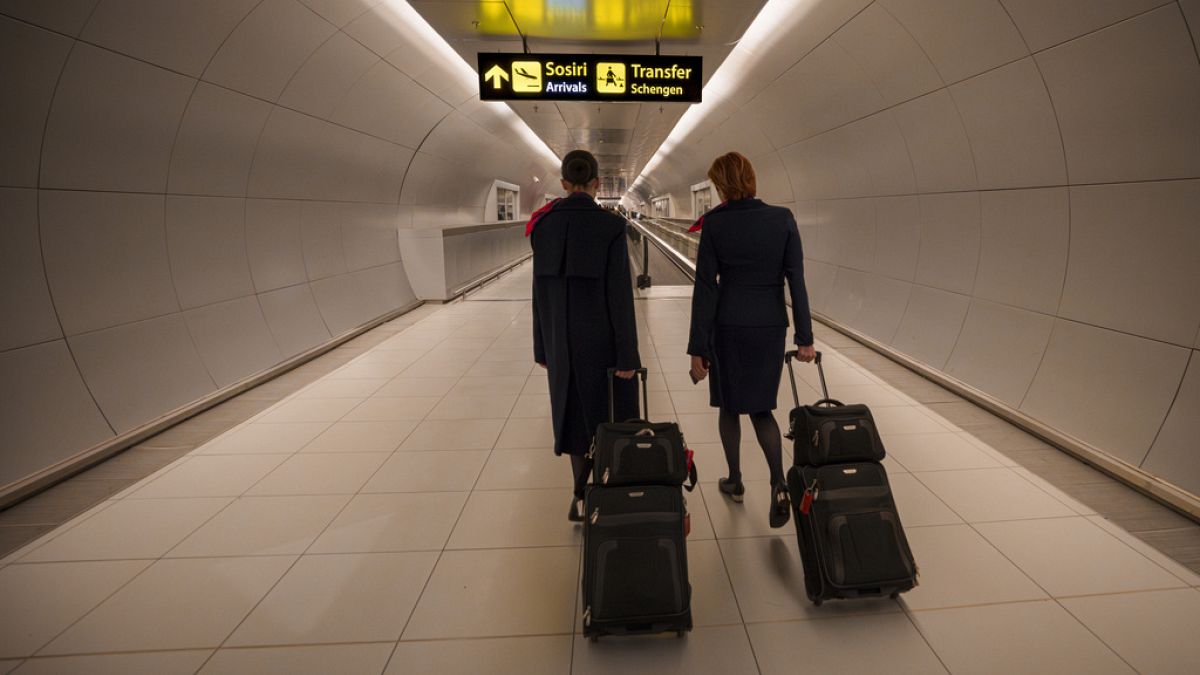The first Schengen zone flight between Romania and Bulgaria took place the day after the countries partially joined Europe’s ID-check-free travel zone.
After years of negotiations to join the Schengen area, Romania and Bulgaria now have free access for travellers arriving by air or sea from both countries. However, land border checks will remain in place due to opposition primarily from Austria which has long blocked their bid over illegal migration concerns.
EU Commission President Ursula von der Leyen hailed the change as a “huge success for both countries” and a “historic moment” for what is the world’s largest free travel zone.
The Schengen Area was established in 1985. Before Bulgaria and Romania’s admission, it was comprised of 23 of the 27 EU member countries, along with Switzerland, Norway, Iceland and Liechtenstein. Around 3.5 million people cross an internal border each day.
Austria vetoed Romania and Bulgaria’s admission into the Schengen zone at the end of 2022 but allowed Croatia full accession. Bulgaria and Romania joined the EU in 2007 and Croatia in 2013.
Siegfried Muresan, a Romanian Member of the European Parliament, told The Associated Press that it is “an important first step” that will benefit millions of travellers annually.
The European Commission has said for more than a decade that Romania and Bulgaria both meet the technical criteria for full accession, which requires unanimous support from their partners. Both countries have agreed to implement random security screening at airports and maritime borders to combat illegal migration and cross-border crime.
“Bulgaria’s full accession to Schengen will happen by the end of 2024,” Kalin Stoyanov, Bulgaria's interior minister, told reporters on Sunday. “We showed and continue to show to illegal migrants that they should not take the road to Europe through Bulgaria."
The lifting of border control is expected to facilitate operations at Bulgaria’s four international airports, which in 2023 saw nearly 11 million passengers, according to official data.
The airport in the capital, Sofia, serves as the biggest hub for Schengen flights which constitute 70% of all flights, airport representatives said.
While the eased regulations are expected to positively impact the tourism sector, members of the European Parliament have voiced concerns about long queues at the EU’s land borders and the impact it can have on trade in the bloc’s single market, as well as the health and safety of drivers.
Truck drivers are frequently stuck in kilometers-long queues at the borders of both Romania and Bulgaria. The Union of International Carriers in Bulgaria estimates delays cost the sector tens of millions of euros each year.

